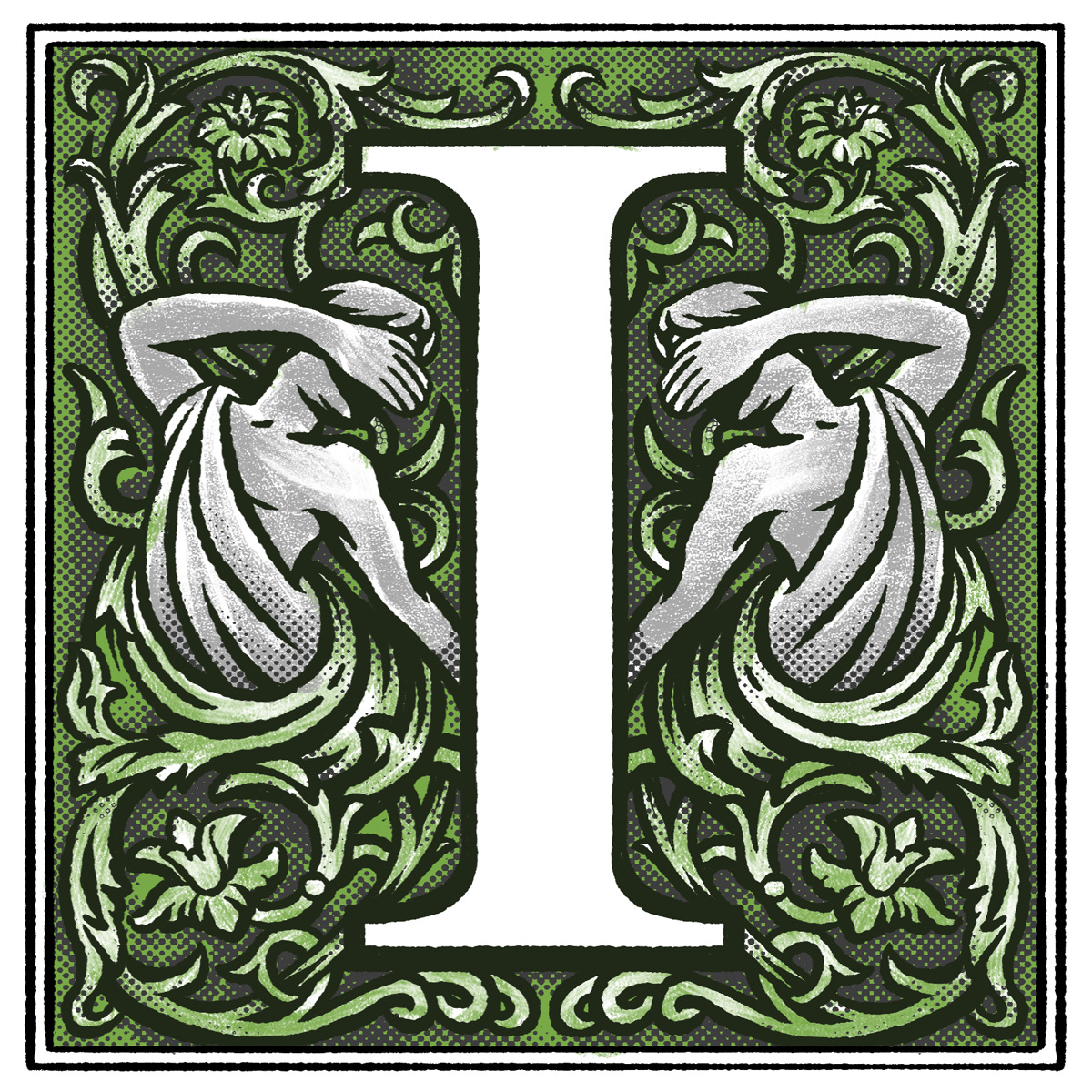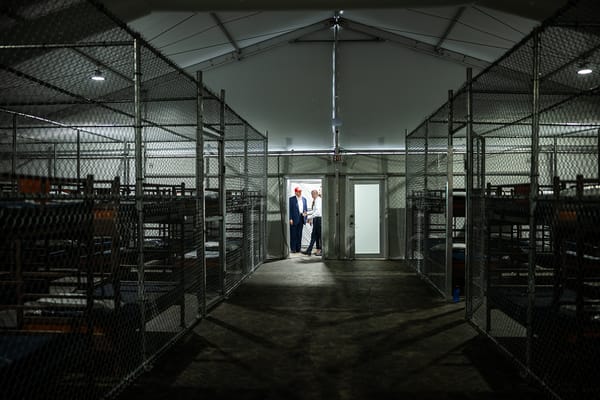INDIGNITY VOL. 3, NO. 63: It's impossible for the Supreme Court to be corrupted.
THE WORST THING WE READ™

John Roberts Sends a Message
"I MUST RESPECTFULLY decline your invitation," Chief Justice John Roberts wrote to Sen. Richard Durbin yesterday, rejecting a request from the Senate Judiciary Committee to testify about Supreme Court ethics.
Durbin had written to Roberts on April 20, after ProPublica published a long account of Justice Clarence Thomas' lavish gift-taking from Texas billionaire Harlan Crow. "[T]here has been a steady stream of revelations regarding Justices falling short of the ethical standards expected of other federal judges and, indeed, of public servants generally," Durbin wrote, asking Roberts to take part in "a new public conversation on ways to restore confidence in the Court’s ethical standards."
Roberts was writing back to tell the Judiciary Committee, not at all respectfully, that his court was not going to be part of any such conversation. That same day, Politico reported that Justice Neil Gorsuch collected "between $250,001 and $500,000" from the head of the Greenberg Traurig law firm in a real estate sale nine days after Gorsuch was confirmed to the Supreme Court in 2017—a transaction in which Gorsuch "did not disclose the identity of the purchaser."
In 1969, Justice Abe Fortas resigned from the court over his having accepted (and then returned) a $20,000 payment from the scandal-plagued financier Louis Wolfson—a payment equivalent to about $154,000 in 2017 dollars, less than the low-end estimate of Gorsuch’s real estate deal. But that happened long before John Roberts, writing for a unanimous court in McDonnell v. United States in 2016, declared that a state governor could not be convicted of taking bribes to perform an "official act," just because that governor and his wife had taken $175,000 in gifts from a businessperson, including soliciting help with a daughter's wedding expenses and asking for a Rolex, and then the governor had promoted that person's business with the state.
"[C]onscientious public officials arrange meetings for constituents, contact other officials on their behalf, and include them in events all the time," Roberts wrote in McDonnell, gutting the entire concept of prosecuting anyone for selling influence. Without a direct request for a specific favor, the chief justice ruled, there was no basis to conclude bribery was taking place, no matter how much money might be changing hands.
Seven years later, it appears that the members of the Roberts Court are in the habit of accepting invitations from Scrooge McDuck to go splashing around in his swimming pool of money, with permission to keep whatever stray coins and bills may get caught in their swimming-trunk linings. Billionaires spend lavishly to put the justices they want on the court in the first place—McDonnell was an 8–0 decision because at the time the ninth seat was being kept open by Republicans, at the behest of one anonymous $28.5 million donor—and then justices collect direct and indirect favors from the wealthy and powerful while leaving them off their disclosure forms.
And John Roberts, famed for his concern about the court's reputation and legitimacy, refused to even begin to discuss any of this. The bulk of his letter was one long, filibustering paragraph arguing that "[t]estimony before the Senate Judiciary Committee by the Chief Justice of the United States is exceedingly rare" and that previous examples of such testimony, or testimony to the House, dealt with "routine matters" or "mundane topics."
By focusing on chief justices, Roberts was ignoring the fact that Stephen Breyer and Antonin Scalia had testified before the Judiciary Committee in 2011, as sitting members of the Supreme Court, on topics specifically including ethics and conflicts of interest. Even more specifically, here's how the New York Times described the background of the hearing, eleven and a half years ago:
The ethical conduct of the Supreme Court has been under growing scrutiny. Questions have been raised over Justice Clarence Thomas’s appearances before Republican-backed groups and his acceptance of favors from a contributor in Texas, Harlan Crow, as well as over his wife, Virginia Thomas, and her job as a conservative advocate.
The chief justice also admonished Durbin about "separation of powers concerns and the importance of preserving judicial independence," and compared his position to that of the president, noting that "Congressional testimony from the head of the Executive Branch is likewise infrequent." Saying "separation of powers" is a way to sound principled while rejecting the concept of checks and balances, or of accountability at all. And the independence of the judiciary is exactly the question at issue, as Harlan Crow displays a custom painting of himself hanging out with Thomas and Leonard Leo, the project manager for the construction of the current 6–3 right-wing court, or flies Thomas via private jet for the swearing-in of a lower-court judge in a ceremony held in Crow's own library.
To conclude his non-communication, Roberts attached a "Statement of Ethics Principles and Practices," signed by the full court. The Supreme Court, the statement said, follows "the substance" of the code of conduct of the Judicial Conference of the United States, and the Conference reviews the justices' financial disclosures, issuing a "letter of inquiry" in the event of possible "errors or omissions." The disclosure rules are "sometimes complex," the statement noted: "Just last month, for example, [the Judicial Conference's Committee on Financial Disclosure] provided clarification on the scope of the 'personal hospitality' exemption to the disclosure rules."
Nevertheless, to be a Supreme Court justice is to occupy a rarefied and lonesome position—a "unique institutional setting," as the statement put it—up where the air and the rules necessarily get thin. Where other, lower judges might readily recuse themselves for a conflict of interest, the statement pointed out, they can count on some other judge being substituted in. But there are only nine justices and no alternates. "Justices have a duty to sit," the statement said, "that precludes withdrawl from a case as a matter of convenience or simply to avoid controversy." The correct response to controversy, for the Roberts Court, is to refuse to acknowledge it at all.


WEATHER REVIEWS
New York City, April 25, 2023
★★★ Midmorning was so bright it was hard to tell if indoor lights were off or on. Tulips clustered in a lumber-walled planting box in the community garden. The sun hit the Fifth Avenue sidewalk directly and then once again as it glanced off the plate-glass windows. A pale green canopy of plane trees floated above Madison Square; a woman in a cream-colored sweater leaned against the post of the sidewalk clock as a man crouched down to snap a phone photo. A sudden interlude of clouds took over, and the stimulating chill became plain cold. Blue rifts appeared, and even a spot of sun, but the overall gloom wouldn't disperse. Two pigeons took off from the park path, their wing beats sweeping dried, fallen petals clear from the pavement below them.

EASY LISTENING DEP’T.
The Indignity Morning Podcast is also available via the Apple and Spotify platforms.

SANDWICH RECIPES DEP’T.
WE PRESENT INSTRUCTIONS for the assembly of sandwiches from Our Sisters Recipes, Compiled in Pittsburgh, Penna., by Nettie M. Kaufman, published in 1909, found in the public domain and available at archive.org for the delectation of all.
NEUCHATEL SANDWICHES.
1 Neuchatel cheese or cream cheese;
1 tablespoon butter;
1 cup ground walnuts;
Cayenne pepper;
2 teaspoons sherry;
Salt to taste.
Mix cheese with butter or a little cream; add other ingredients and spread as a canape on sandwich on rounds of bread.
—Mrs. F. G. L.
CHICKEN LIVER SANDWICHES.
These sandwiches are made of boiled chicken livers, smoothly mashed, and mixed with chopped olives and mayonnaise, and spread in the usual manner.
—Mrs. M. Sailer.
GARNIETER LIPTANER. (Viennese Sandwich.)
Mix to a smooth paste the following :
1/4 tb. Appetitseln;
2 tablespoons sweet butter;
1 Philadelphia cream cheese;
1 tablespoon capers;
Big dash paprika.
Spread this on thinly-cut bread, with a lettuce leaf between.
— Mrs. I. Rothstein.
THREE FILLINGS FOR SANDWICHES.
No. 1. — Place a lettuce leaf on a slice of buttered bread and sprinkle with grated store cheese. Cover with another piece of buttered bread and cut into any desired shape.
No. 2. — Mix an equal amount of chopped English walnuts and olives and for every half cupful of the mixture put in two tablespoons mayonnaise.
No. 3. — Two hard-boiled eggs, chopped and mixed with two tablespoons mayonnaise spread on a lettuce leaf.
If you decide to prepare and attempt to enjoy a sandwich inspired by this offering, kindly send a picture to us at indignity@indignity.net.

Thanks for reading INDIGNITY, a general-interest publication for a discerning and self-selected audience. We depend on your support!






